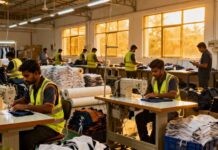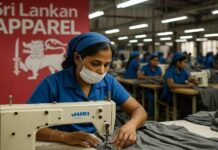A six-month study conducted in 2024 analyzed over 100 sources, including academic research, news articles, opinion pieces, and interviews with 19 key stakeholders.
The resulting report, titled ‘Toward Promoting Human Rights and Decent Working Conditions in the Leather Supply Chain,’ provides a comprehensive evaluation of the Brazil leather supply chain, addressing its global and national dimensions. The report identifies critical labour and human rights challenges, outlines obstacles, and highlights ongoing efforts to improve conditions within the industry.
Richa Mittal, executive vice president and chief innovation officer at the FLA, explained: “By illuminating challenges in upstream supply chains for commodities like leather, we aim to drive accountability and inspire collective actions toward a more equitable industry. This will help ensure dignity and respect for all workers at all levels of a company’s global supply chain – not just Tier One.”
Brazil’s Leather Sector: A Key Global Player
Valued at around $3 billion, Brazil’s leather industry ranks as the third-largest globally, following Italy and the US. The country processes 40 million hides annually, with over 80 per cent exported to 80 international markets. A significant share—25 per cent or 8 million hides—is sent to the European Union. The leather industry, supported by 244 tanneries, provides employment for approximately 30,000 people.
The report highlights that the Brazil leather supply chain is closely tied to the beef industry, which is expected to grow by 35 per cent over the next 20 years. While over 80 per cent of leather is exported, only 20 per cent of beef production is shipped abroad, emphasizing the export-oriented nature of leather.
Key Insights into Brazil’s Leather Supply Chain
- Supply Chain Opacity:
A lack of transparency among farms, slaughterhouses, and tanneries creates information gaps, reduces product traceability, and limits insights into working conditions. - Labour and Human Rights Concerns:
Workers in the leather supply chain face significant risks:-
Slaughterhouses: Issues include mistreatment, psychological stress, gender discrimination, and unsafe working conditions.
-
Tanneries: Challenges include chemical exposure, child labour risks, temporary contracts, and lack of union representation.
-
Farms: Problems such as irregular employment, inadequate pay, poor living conditions, and potential modern slavery persist.
-
- Inadequate Certifications:
Current certification systems fail to address upstream supply chain segments, such as farms and slaughterhouses, where the greatest risks to labour and human rights occur. - Collaboration Gaps:
Industries such as apparel, footwear, and meat packaging lack coordinated efforts to improve traceability or enforce human rights due diligence (HRDD) along the entire supply chain.
Recommendations for Improvement
The report outlines four strategies for companies to enhance traceability and integrate social and environmental factors into their supply chains:
- Proprietary Systems:
Develop in-house traceability systems and human rights environmental due diligence (HREDD) processes, focusing on Tier One suppliers. - Third-Party Collaboration:
Partner with external organizations to implement traceability initiatives and adopt technologies like certification systems, blockchain, or digital passports. - Industry Coalitions:
Collaborate within or across industries to address supply chain mapping, remediation efforts, and policy advocacy. - Exit High-Risk Regions:
Withdraw from regions where businesses lack leverage due to geopolitical challenges and sectoral risks.
Raquel Fisch, principal consultant at Impactt, reiterated the importance of these findings:
“This report brings much-needed attention to the parts of the leather supply chain where risks to workers are highest — and visibility is lowest. This research shows that workers on farms, in slaughterhouses, and in tanneries often face harsh conditions with little oversight or recourse. Yet these tiers are rarely covered by human rights due diligence. This report offers a valuable roadmap for companies to build traceability and accountability upstream, and to design systems that start with the realities of the workers most affected.”
Disseminating the Findings
To share the report’s critical insights, FLA and Impactt will host a public webinar on 28 May, offering an opportunity to discuss actionable steps for improving transparency and accountability across the Brazilian leather sector.

































